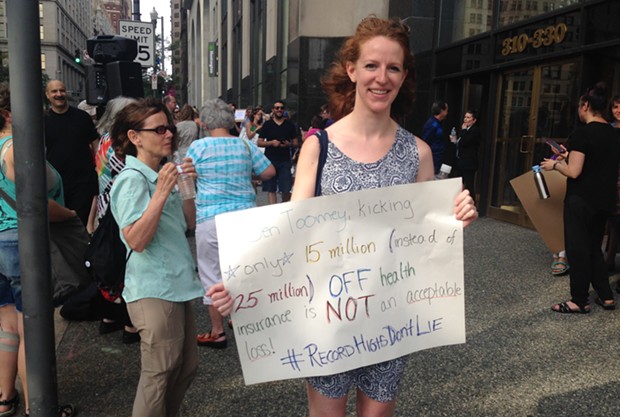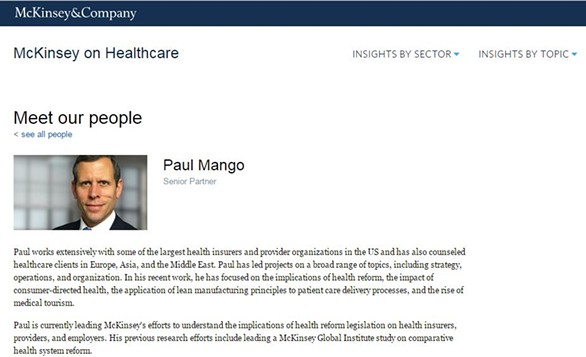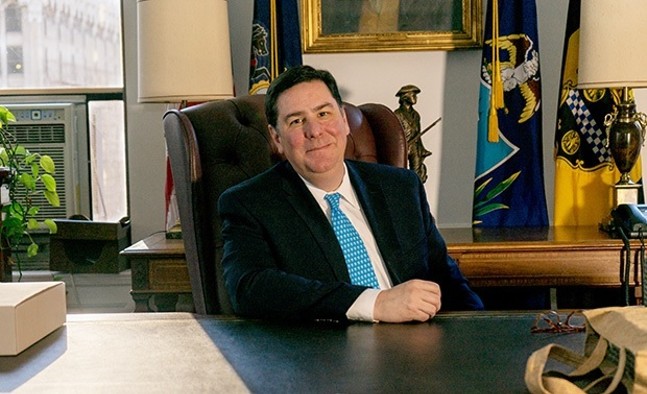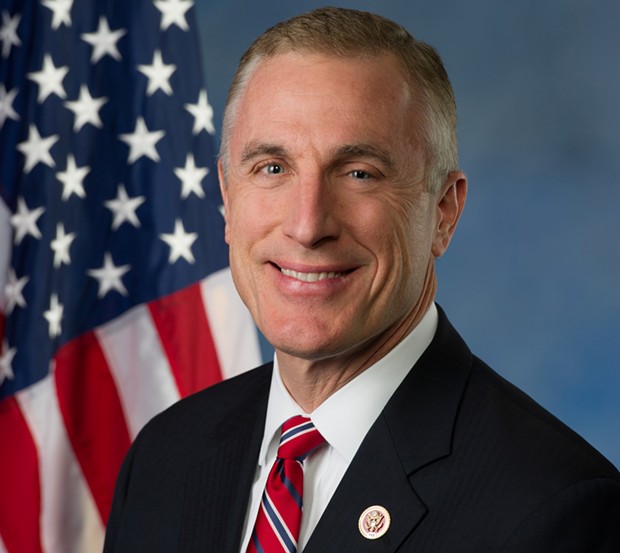Friday, June 29, 2018
Pittsburgh and Allegheny County officials seem to understand this. Last week, both Pittsburgh City Council and Allegheny County Council passed resolutions asking federal and state officials to take steps to pass a universal, single-payer health-care system.
Tags: Pittsburgh City Council , Allegheny County Council , single-payer health care , universal health care , Harrisburg , Democratic Socialists of America , Anita Prizio , Corey O'Connor , Jay Walker , Green Party , Democrats , PolitiCrap , Image
Friday, May 11, 2018
"I fully support Auditor General DePasquale’s Plan to legalize/regulate/tax marijuana in Pennsylvania. More importantly, so do a majority of Pennsylvanians," Peduto tweeted while linking a tweet from DePasquale.
Tags: Bill Peduto , recreational marijuana , Eugene DePasquale , Pennsylvania , John Fetterman , Jim Kenney , General Assembly , Franklin & Marshall College , Image
Tuesday, April 3, 2018

On April 3, Peduto signed an executive order that will direct the Department of Human Resources and Civil Service to develop a policy to provide non-union employees with “paid safe leave.” This new policy will ensure that victims of domestic abuse can get paid time off to handle situations related to domestic violence, including acquiring Protection from Abuse Orders (PFA), going to meetings related to custody battles, finding child care, and visiting hospitals.
The policy has yet to be written, but Peduto said at an April 3 press conference that a policy must be established by July 3, 2018. Department of Human Resources and Civil Service director Janet Manuel said at the press conference that Pittsburgh officials will be working with local groups like the Women's Law Project, Pittsburgh Action Against Rape, and the Women's Center and Shelter of Greater Pittsburgh to craft the policy over the next 90 days. Manuel said details to be ironed out could include exactly how many days off will be provided to domestic-violence victims.
Tags: Pittsburgh , Bill Peduto , Janet Manuel , National Partnership on Women and Girls , Department of Human Resources and Civil Service , Women's Law Project , Pittsburgh Action Against Rape , Women's Center and Shelter of Greater Pittsburgh , paid safe leave , domestic violence , Pennsylvania , Image
Wednesday, October 4, 2017
Murphy responded to Edwards' post in a text message, obtained by the PG, saying "I get what you say about my March for life messages. I've never written them. Staff does them. I read them and winced. I told staff don't write any more. I will."
And just two hours after this story broke, Murphy voted yes for a bill that would make it illegal for women to get abortions after they are pregnant for 20 weeks. The bill, HR 36, passed the U.S. House by a 237-189 margin. If it passes the Senate and is signed by President Donald Trump, the bill says that "a violator is subject to criminal penalties—a fine, up to five years in prison, or both." The Trump administration supports the bill and as said it "will help to facilitate a culture of life," according to the Huffington Post.
Exceptions to the 20-week rule include if the woman was a victim of rape or incest and if the abortion is necessary to save the mother's life.
Murphy's voting record aligns with his most recent vote to restrict women's abortion access. In 2015, he was given a 0 percent rating by the pro-choice organization National Abortion Rights Action League (NARAL). And for his 2014 congressional run, he was endorsed by the National Right to Life Committee, Inc., a pro-life group for his "100% pro-life voting record."
In fact, earlier this year Murphy supported HR 7, which would prohibit insurance companies from offering coverage for abortions. Murphy said in a statement in January after the bill passed the U.S. House: “I am so proud the House passed this important bill to clearly stand for the dignity and value of all human life, both the born and the unborn. Passage of H.R. 7 in the wake of the President’s executive action yesterday gives me great hope that moving forward, we will once again be a nation committed to honoring life from the moment of conception onward and ensuring American taxpayer dollars are never spent to end a life before it even begins.”
Sasha Bruce, Senior VP for Campaigns and Strategy of NARAL, said Murphy's vote on HR 36, and many of his other votes, is the "height of hypocrisy."
“I wish it were shocking to learn that yet another Republican congressman tried to cover up an affair by invoking the same abortion rights he tries to deny to others," wrote in an email to City Paper. "You shouldn’t have to be a member of Congress just to access your right to abortion. With his personal and public actions, Congressman Murphy has shown that he seeks to control women in every facet of his life, be it to cover up an affair or to deny all Americans the right to legal abortion."
Tags: Tim Murphy , Pittsburgh Post-Gazette , Donald Trump , NARAL Pro-Choice America , National Right to Life Committee , Inc. , HR 36 , aborition , PolitiCrap , Image
Tuesday, September 19, 2017
All Senate Democrats are, unsurprisingly, opposed to this bill, and a growing share of them are actually offering their support to the near opposite of the GOP’s health-care bill: a single-payer health-care law. Single-payer would provide health-care coverage to everyone in a program similar to Medicare, which is available only to seniors. The left wing of the Democratic Party is abuzz with news that U.S. Sen. Bernie Sanders’ (I-Vt.) “Medicare for All” bill has garnered the support of 16 Democratic senators, more than a third of Senate Democrats, but notably, not Pennsylvania Sen. Bob Casey (D-Scranton).
But under the radar, support for a single-payer plan has been steadily growing in the U.S. House, with a majority of house Democrats supporting it, including every U.S. congressperson from Pennsylvania.
U.S. Rep. John Conyers (D-Mich.) has introduced his Medicare for All bill in every session of the U.S. House since the 108th U.S. Congress in 2003. It started with only 39 co-sponsors, and only one from Pennsylvania, former U.S. Rep. Chaka Fattah (D-Phila.). In 2005, Conyers' bill received 79 co-sponsors, including three Pennsylvania reps, including U.S. Rep. Mike Doyle (D-Forest Hills).
In an interview with Pittsburgh City Paper, Doyle said his support for Conyers' single-payer bill doesn’t mean he supports repealing the ACA. “I don’t want us to lose focus on stabilizing the ACA first,” said Doyle. “But it makes no sense to me that our country does not provide a basic set of benefits for everyone.”
Since 2005, Doyle has co-sponsored Conyers' bill every session, and support for the bill has only grown since. Conyers' most recent version, introduced in January, now has 118 co-sponsors, which is more than 60 percent of House Democrats. Doyle, along with Bob Brady (D-Phila.), Brendan Boyle (D-Phila.), Matthew Cartwright (D-Lackawanna) and Dwight Evans (D-Phila.) form Pennsylvania’s House support for single-payer health care. This group constitutes all five Democratic members of Pennsylvania's U.S. House representation.
Doyle said people should not be afraid of the term single-payer, since Conyers' bill will still provide a market for people who want to purchase supplemental private insurance. Doyle said he doesn’t agree with everything in Conyers' bill, but backs it because he believes everyone is entitled to health coverage, and that a serious discussion should take place on how to achieve that goal.
He said it makes more business sense to have a single-payer system, since many people without health insurance receive treatment in emergency rooms, instead of from primary-care physicians.
“We kind of have single-payer now, it’s called the emergency room, and we are paying five times as much compared to primary care,” said Doyle. “The reality is that every American should have access to a primary-care doctor. And no one should suffer catastrophic loss of money due to health care.”
Doyle said he doesn't understand the demagoguery around single-payer, particularly because Medicare, a single-payer system for seniors, has pretty widespread support. “You don't hear Republicans saying Medicare is a horrible thing and we should abolish it,” said Doyle.
He believes that as the single-payer discussion continues, the approach will become more popular. According to a June Pew Research poll, 33 percent of Americans now support single-payer health care, compared with 21 percent in March 2014. The poll also indicated that a majority of likely Democratic voters (52 percent) support single-payer.
“The more people understand it, the more they realize it is a good way forward,” said Doyle.
Tags: Mike Doyle , Pennsylvania , Pittsburgh , Affordable Care Act , Medicare for All , Bob Brady , Brendan Boyle , Matthew Cartwright , Dwight Evans , single-payer heath care , Bernie Sanders , PolitiCrap , Image
Monday, July 24, 2017
Tags: Allegheny County Council , Anita Prizio , Ed Kress , Pittsburgh Water and Sewer Authority , Wayne Fontana , Karen Hacker , Bernie Sanders , Democratic Socialists of America , U.S. Environmental Protection Agency , Rich Fitzgerald , PolitiCrap , Image
Tuesday, June 27, 2017

Pennsylvania had the eighth-highest overdose-related death rate of any state in 2014 and the sixth highest in 2015. That increase was one of the highest in the U.S. and was considered “statistically significant,” according to a report from the Centers for Disease Control and Prevention. In 2015 in Pennsylvania, 3,264 lost their lives due to drug overdoses. The CDC report said the vast majority of these deaths were caused by opioid usage.
As the opioid crisis has worsened across the country, and particularly in Pennsylvania, some are becoming critical of Toomey’s recent moves related to federal funding for opioid-addiction treatment. Toomey is one of about a dozen U.S. senators who crafted the Republicans’ effort to repeal the Affordable Care Act, called the Better Care Reconciliation Act. (The U.S. House version is called the American Health Care Act).
Tags: Pat Toomey , U.S. Senate , Better Care Reconciliation Act , Medicaid , Centers for Disease Control and Prevention , Pennsylvania , Tom Wolf , Bob Casey , Kasia Mulligan , Caitlyn Fitzsimmons , John Kasich , Richard Frank , Shelley Moore Capito , Rob Portman , Kate Mevis , Teresa Miller , PolitiCrap , Image
Thursday, May 25, 2017

A now-removed bio from the McKinsey & Company website described Mango as focusing on “the implications of health reform, the impact of consumer-directed health, the application of lean manufacturing principles to patient care delivery processes, and the rise of medical tourism.”
Tags: Paul Mango , American Health Care Act , Affordable Care Act , Dan Frankel , McKinsey & Company , PolitiCrap , Image
Thursday, March 16, 2017
Pittsburgh is a tiny island of blue surrounded by a sea of red. Pennsylvania’s 14th U.S. congressional district was won by Mike Doyle (D-Forest Hills) with 74 percent of the vote in 2016, but the next closest Pennsylvania Democratic-controlled U.S. House district is in Schuylkill County, more than 130 miles away.
But that isolation isn’t stopping Doyle from defending one of the Democrats' biggest accomplishments in the last decade, the passage of the Affordable Care Act. (Doyle will hold a town hall in Pittsburgh, on March 18, to listen to constituents' opinions on health care.)
Last week, Doyle spoke at two House committees, the Ways and Means Committee and the Energy and Commerce Committee, where he staunchly defended the ACA, elevating his voice many times to make his point.
On March 8, speaking in the House Ways and Means Committee, Doyle said “there is a lot of amnesia on this committee” and reminded the representatives about the state of American health care before the implementation of the ACA.
“Insurance companies could discriminate against sick people,” said Doyle. “People had insurance, but had someone in the family with a chronic condition, and they would come up against their cap and people couldn’t get any more payment from their insurance company. They would hold fish frys to try to raise money for their kids, and eventually they went bankrupt and lost their homes. We put an end to that.”
Doyle then took issue with many Congressional Republicans who claim that the ACA is in “death spiral.” He said that House Speaker Paul Ryan’s (R-Wisconsin) bill, called the American Health Care Act, keeps many aspects that were created under the ACA, like allowing adults under 26 to stay on parents' health care and prohibiting insurance companies from charging higher prices to people with pre-existing conditions.
“Don’t call this failure, it's not a failure,” said Doyle. “If it was such a failure, why isn't that you haven’t just abolished all those things we did? You are keeping a lot of things. … Don’t cast the vote anyway and try to take credit that you have done something great for the American people. The only thing that is any good about what you are proposing, are the things that we did eight years ago in the Affordable Care Act.”
On March 9, in the Energy and Commerce Committee, which Doyle sits on, he continued his fiery defense of the ACA, even while recognizing the law needs adjusting.
“None of us think this bill is perfect,” said Doyle, of the ACA, on March 9. “I have never heard a single Democrat say that this bill is perfect. We knew that it needed work, and we wanted for the last seven years to work with Republicans to try and improve this bill. You guys weren't very interested in that.”WOW. The #GOP’s reason to object to insurance covering prenatal care? “Why should men pay for it?” Watch: #Trumpcare #ProtectOurCare pic.twitter.com/Q55nG1Un8j
— NARAL (@NARAL) March 9, 2017
In 2010, the ACA passed the House by a vote of 219-212. All 178 House Republicans voted against the bill, a strategy orchestrated by then-House Minority Whip Eric Cantor (R-Virginia). The day after the ACA cleared the house, House Republicans introduced a bill to repeal the law.
During the Energy and Commerce Committee hearing, some Republicans objected to the mandates in the ACA, and Doyle was confused by this objection.
“What mandate in the [ACA] bill does he take issue with?” asked Doyle. “Certainly not in the pre-existing conditions, or caps on benefits, or letting your child stay on the policy till 26. I am curious. What is it we are mandating?”
Rep. John Shimkus (R-Illinois) responded to Doyle’s question asking, “What about men having to purchase prenatal care? Is that not correct?”
Shimkus' objection was widely panned by pro-choice and women’s health groups, and picked up by almost every major news organization. Doyle was perplexed.
“There is no such thing as a la carte insurance, John,” said Doyle. Shimkus then said that health-insurance consumers should be able to “negotiate a plan that they want,” hinting that consumers should only have to pay for coverage they personally need.
However, individual health insurance did offer a la carte choices for maternity care before the ACA. But this system made it almost impossible for people to access maternity care through health insurance. The National Women’s Law Center reported in 2013 (before the ACA was fully implemented) that only 12 percent of individual market plans included maternity benefits, even as nine U.S. states mandated that maternity care be included in health coverage. Before the ACA, many maternity-care plans were actually more expensive than the cost of entire health-insurance plans.
Doyle’s public town hall will be held from 2-4 p.m. Sat., March 18, at Soldiers & Sailors Memorial Hall, in Oakland.
Tags: Mike Doyle , John Shimkus , Affordable Care Act , U.S. Congress , PolitiCrap , Image
Wednesday, October 26, 2016

HIV-related health care in Southwestern Pennsylvania is due for an overhaul, and the Pittsburgh AIDS Task Force is responding. On Oct. 25, the longtime HIV-service organization completed a $1 million renovation that not only expanded current services at its East Liberty headquarters, like a food pantry and pharmacy, but also created a new sexually transmitted infections testing center and a fully functional medical clinic.
Pittsburgh Mayor Bill Peduto was on hand to cut the ribbon at PATF’s new facility yesterday and lauded it, saying it could help address the problem of stigmas associated with people living with HIV.
“They are not just treating the disease, they are treating the stigma,” said Peduto. “People were afraid to get help, but [PATF] is having a dialogue we need to have, that we were not ready to have.”
The clinic, which is led by Dr. Sarah McBeth, will specialize in HIV care, but also provide routine medical care for clients and their families, and sexual-health care for community members, even if they don’t have HIV. Sean DeYoung, PATF CEO, said the task force already serves the entire 11-county Southwestern Pennsylvania region through outreach and testing, but he hopes the expansion will bring in people from all over to get the health care they need.
“A lot of people come into PATF from rural counties,” said DeYoung. “My hope is that they are more likely to get engaged in the care they need when they visit.”
Pennsylvania’s opioid epidemic has led to stark increases in HIV outbreaks and hepatitis C in places where those infections used to barely exist, like Somerset County. DeYoung said he hopes to get a mobile testing unit operational soon, to test the rural population. He also noted the space dedicated at the new PATF facility for a behavioral-health office, which will offer mental-health and substance-abuse counseling. PATF expects that service to be operational in late 2017.
U.S. Congressman Mike Doyle (D-Forest Hills) also attended the ribbon-cutting. He applauded the new facility, saying it will usher in the modern care that the community needs.
“This speaks volumes [about] the work the the Pittsburgh AIDS Task Force does for the community,” said Doyle. “To see a one-stop shop where people can get care, it shows how [health care] is adapting.”
Tags: Pittsburgh AIDS Task Force , Bill Peduto , Mike Doyle , HIV , Sean DeYoung , Image














